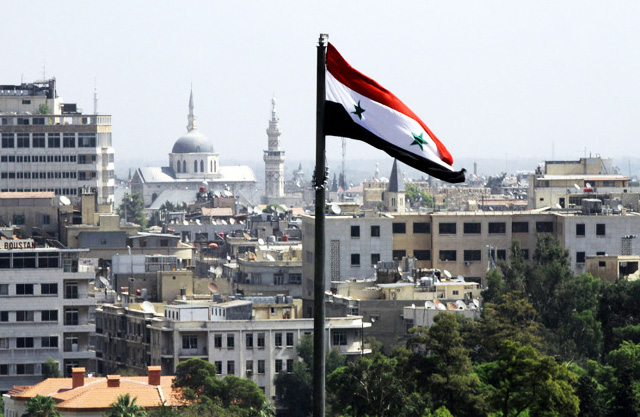Baku, Azerbaijan, Nov. 5
By Rufiz Hafizoglu - Trend:
Military operations in Syria against the terrorist organization "Islamic State" have not yet brought an end to the crisis in that country.
Also, those countries taking actions to eliminate the IS are currently at odds regarding President Bashar Assad's future status in Syria, with only Iran and Russia supporting his remaining in power.
Iranian and Russian support for Assad is regarded by some as these two countries' sustainable policy in Syria.
But, in fact, the support for the Syrian president is a clear indicator of the shortsighted policy held by both Tehran and Moscow on Syria. Had these two countries had an alternative to Assad, it could have been possible to avoid the expansion of the Syrian crisis.
While the US-led coalition, as well as Iran, Russia and Iraq, are discussing how to deal with the IS, the terrorist organization is becoming increasingly wealthy.
According to recent reports, the annual income of the IS exceeds $1.5 billion - an amount that might be the envy of some African countries.
Therefore, a question arises: How did the "Islamic State" take hold of such a large amount of money?
The IS terrorists began to receive their first funds after capturing such major Iraqi cities as Mosul, Nineveh and Salahaddin, and specifically after they robbed the banks in those cities.
Agriculture is the second source of income for the "Islamic State"
According to the Food and Agriculture Organization, wheat is being grown on 40 percent of the fields located in the territories controlled by terrorists in Iraq.
The IS also received revenues from illegal oil sales, human trafficking and various "taxes".
Additionally, historical treasures and antiquities are being smuggled under IS supervision from Syria and Iraq.
While the 'IS' is easily raising capital, contributing to the constant influx of radicals into the organization, area countries spend millions on operations to combat the IS, causing great damage to their economies.
Taking this into account, one can say that, ideally, all countries must conduct simultaneous operations to effectively combat the IS.
With regard to Asad's status, which is currently a controversial issue, this must not be the subject of discussion today because, at present, the IS represents a more serious threat.
In the event of the complete destruction of the IS, a presidential election must be held in Syria.
A portion of today's Syrians are refugees in other countries. For example, more than two million Syrian refugees are in Turkey, and more than two million refugees are in Saudi Arabia, according to Saudi authorities, while many Syrian refugees live in Lebanon, Jordan and Iraq.
Of course, it is not so easy to return these refugees to Syria. Taking this into account, it will be necessary to hold elections in neighboring countries. Syrian refugees might participate there under the supervision of international organizations.
Further, the holding of such elections after the complete destruction of the IS might rapidly solve the problem of Asad's status in Syria's future.
But even in case of the complete destruction of the IS and the holding of presidential elections in Syria, if the political situation is not normalized in the country, then, sooner or later, it will again turn into a venue for radical groups.
---
Rufiz Hafizoglu is the head of Trend Agency's Arabic news service, follow him on Twitter: @rhafizoglu








